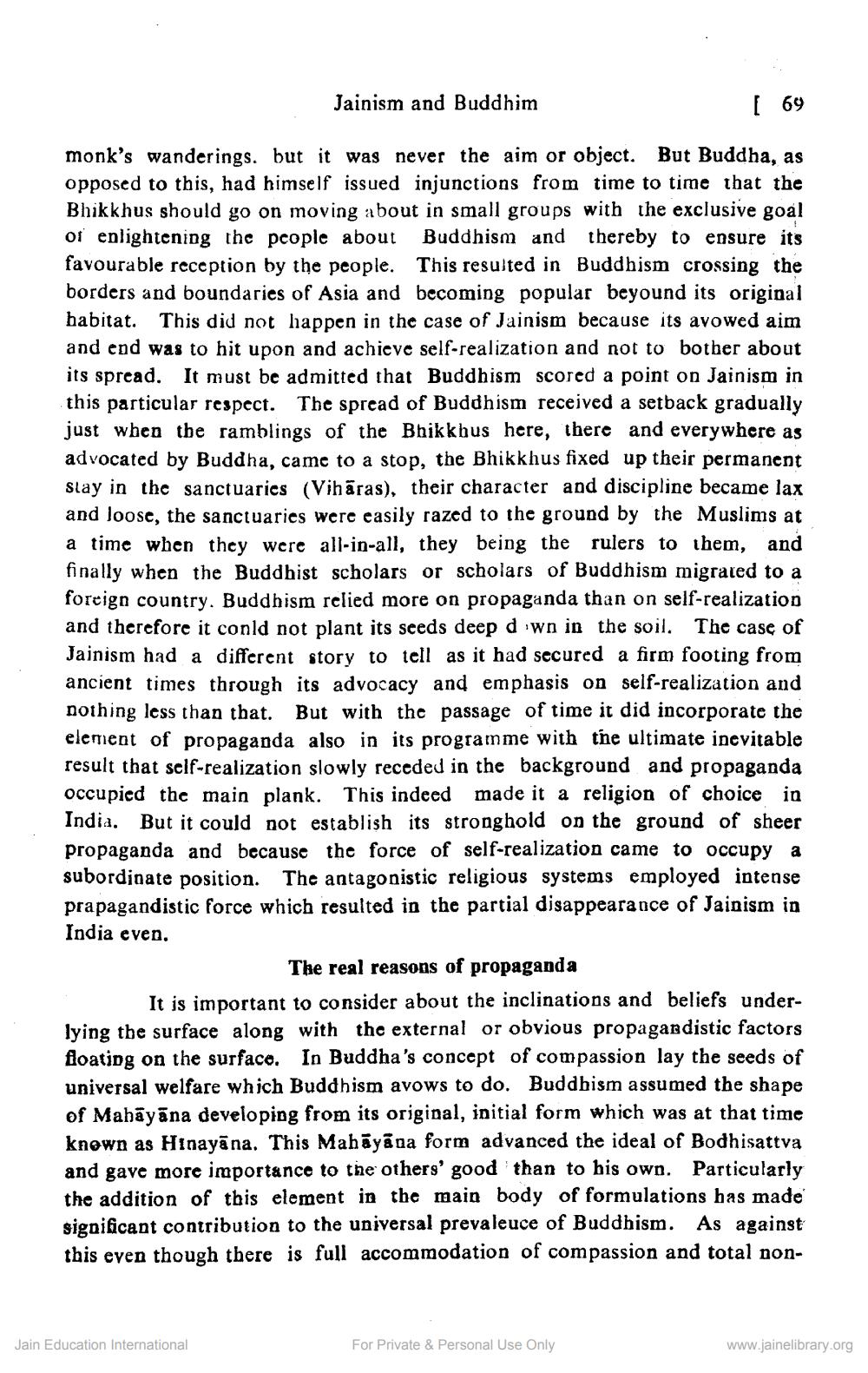________________
Jainism and Buddhim
[ 69
monk's wanderings. but it was never the aim or object. But Buddha, as opposed to this, had himself issued injunctions from time to time that the Bhikkhus should go on moving about in small groups with the exclusive goal of enlightening the people about Buddhism and thereby to ensure its favourable reception by the people. This resulted in Buddhism crossing the borders and boundaries of Asia and becoming popular beyound its original habitat. This did not happen in the case of Jainism because its avowed aim and end was to hit upon and achieve self-realization and not to bother about its spread. It must be admitted that Buddhism scored a point on Jainism in this particular respect. The spread of Buddhism received a setback gradually just when the ramblings of the Bhikkhus here, there and everywhere as advocated by Buddha, came to a stop, the Bhikkhus fixed up their permanent Slay in the sanctuaries (Vihāras), their character and discipline became lax and loose, the sanctuaries were easily razed to the ground by the Muslims at a time when they were all-in-all, they being the rulers to them, and finally when the Buddhist scholars or scholars of Buddhism migrated to a foreign country. Buddhism relied more on propaganda than on self-realization and therefore it conld not plant its seeds deep dwn in the soil. The case of Jainism had a different story to tell as it had secured a firm footing from ancient times through its advocacy and emphasis on self-realization and nothing less than that. But with the passage of time it did incorporate the element of propaganda also in its programme with the ultimate inevitable result that self-realization slowly receded in the background and propaganda occupied the main plank. This indeed made it a religion of choice in India. But it could not establish its stronghold on the ground of sheer propaganda and because the force of self-realization came to occupy a subordinate position. The antagonistic religious systems employed intense prapagandistic force which resulted in the partial disappearance of Jainism in India even.
The real reasons of propaganda It is important to consider about the inclinations and beliefs underlying the surface along with the external or obvious propagandistic factors floating on the surface. In Buddha's concept of compassion lay the seeds of universal welfare which Buddhism avows to do. Buddhism assumed the shape of Mahāyāna developing from its original, initial form which was at that time known as Hinayāna. This Mahāyāna form advanced the ideal of Bodhisattva and gave more importance to the others' good than to bis own. Particularly the addition of this element in the main body of formulations has made significant contribution to the universal prevaleuce of Buddhism. As against this even though there is full accommodation of compassion and total non
Jain Education International
For Private & Personal Use Only
www.jainelibrary.org




